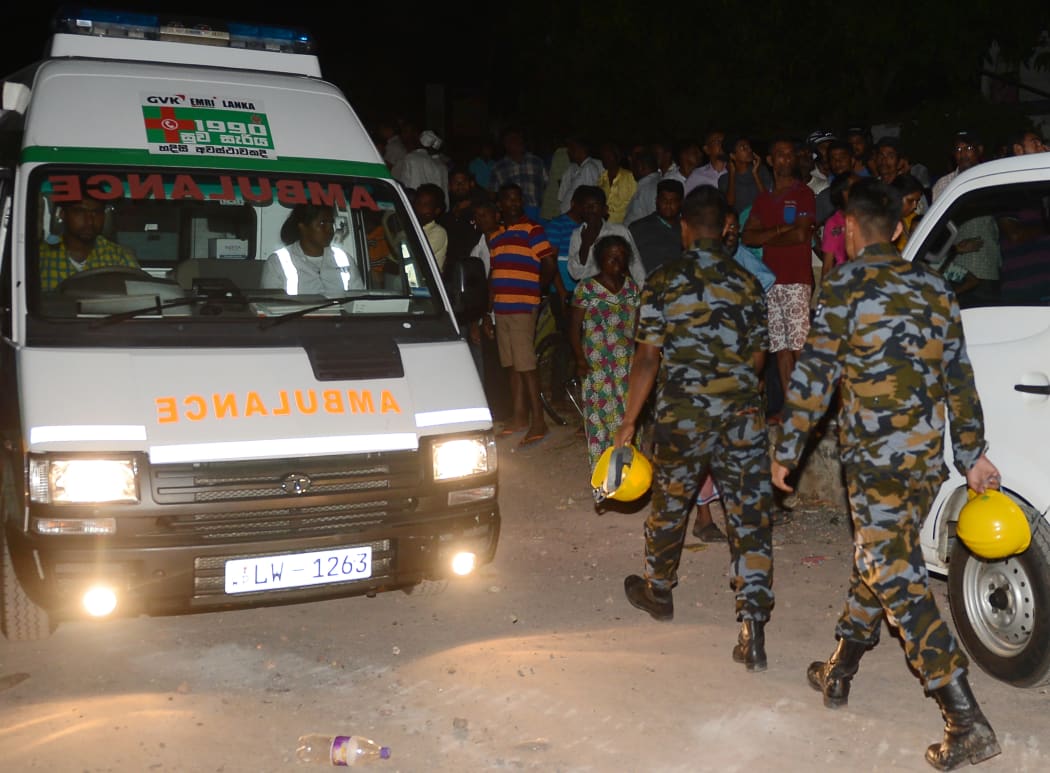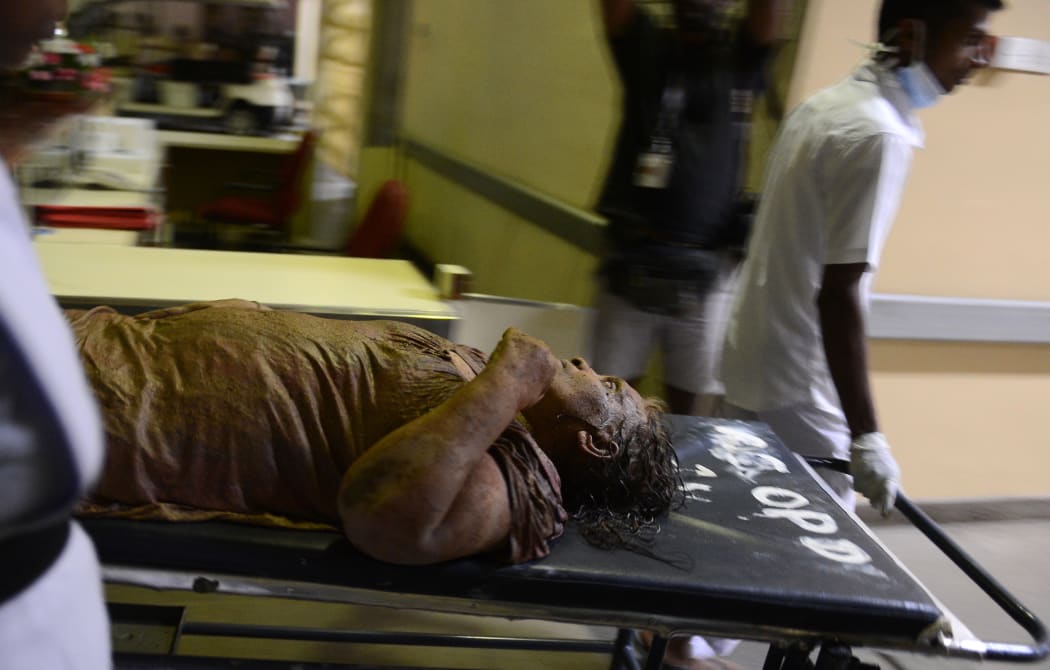A rubbish dump landslide in Sri Lankan capital Colombo has killed at least six people and injured 11, hospital sources said on Friday.

Sri Lankan soldiers arrive to help in the rescue operations at the site of the rubbish dump fire in Colombo, which was estimated to have buried about 40 homes. Photo: AFP
Emergency workers and troops are digging through tonnes of rotting garbage in search of anyone else trapped by the ninety-metre-high mound of rubbish.
Firefighters fought to extinguish a fire at the top of the estimated 91m-high rubbish dump, which collapsed after it was engulfed by flames.
Witnesses told Reuters at least 40 houses may have been buried in the landslide.
A 13-year-old boy and two girls, aged 14 and 15, were among the six who had died, Pushpa Soysa, head nurse at the main Colombo hospital, told Reuters.
"Ten more are being treated at the hospital," Soysa said.
Sri Lanka's government deployed troops and police to help with the rescue operation on the island nation's traditional new year's day. \

Sri Lankan hospital workers bring in a wounded woman to the main hospital in Colombo on April 14, 2017 - during the country's traditional new year celebrations - following a massive rubbish dump fire. Photo: AFP
Police said in a statement they were unable to say how many houses had been buried in the landslide.
"It is too early and still we can't say how many houses are damaged or destroyed and how many people affected," Pradeep Kodippili, Disaster Management Centre spokesman, said.
Residents in the area have been demanding the removal of the dump saying it was causing health issues. The government had planned to remove it soon under an infrastructure plan.
- Reuters



